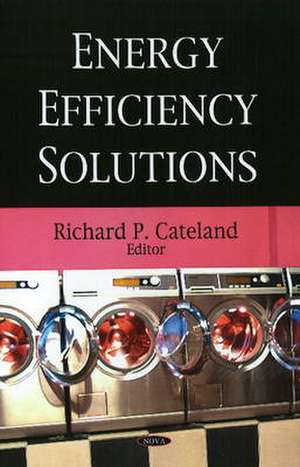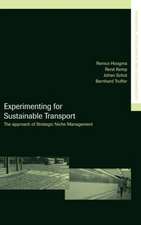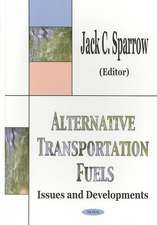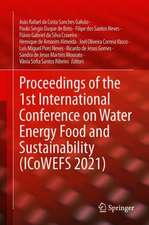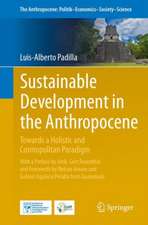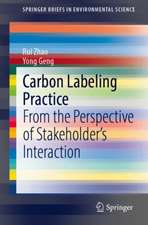Energy Efficiency Solutions
Editat de Richard P. Catelanden Limba Engleză Hardback – 18 aug 2009
Preț: 481.22 lei
Preț vechi: 652.97 lei
-26% Nou
Puncte Express: 722
Preț estimativ în valută:
92.08€ • 96.15$ • 76.04£
92.08€ • 96.15$ • 76.04£
Carte disponibilă
Livrare economică 25 martie-08 aprilie
Preluare comenzi: 021 569.72.76
Specificații
ISBN-13: 9781606925492
ISBN-10: 1606925490
Pagini: 149
Ilustrații: b/w illus
Dimensiuni: 188 x 265 x 15 mm
Greutate: 0.6 kg
Editura: Nova Science Publishers Inc
ISBN-10: 1606925490
Pagini: 149
Ilustrații: b/w illus
Dimensiuni: 188 x 265 x 15 mm
Greutate: 0.6 kg
Editura: Nova Science Publishers Inc
Cuprins
Preface; Automobile and Light Truck Fuel Economy: The CAFE Standards; Energy Efficiency: Opportunities Exist for Federal Agencies to Better Inform Household Consumers; Energy Efficiency: Long-Standing Problems with DOE's Program for Setting Efficiency Standards Continue to Result in Forgone Energy Savings; Testimony of Jonathan Koomey, Lawrence Berkeley National Laboratory, Stanford Univ. Before the Joint Economic Committee of the United States Congress, For A Hearing on Efficiency: The Hidden Secret to Solving Our Energy Crisis; Testimony of Dan W. Reicher, Climate Change and Energy Intiatives, Google.org Before the Joint Economic Committee Hearing on "Efficiency: The Hidden Secret to Solving Our Energy Crisis" July 30, 2008; Opening Statement of Senator Charles E Schumer, Joint Economic Committee Hearing: Efficiency: The Hidden Secret to Solving Our Energy Crisis, July 30, 2008; Testimony of Mark P. Mills, Digital Power Capital (An Affiliate of Wexford Capital LLC) Author, Forbes Energy Intelligence Column, Co-Author, The Bottomless Well (Basic Books, 2005) Before the U.S. Congress Joint Economic Committee Hearing on "Efficiency: The Hidden Secret to Solving Our Energy Crisis" (July 30, 2008); Index.
